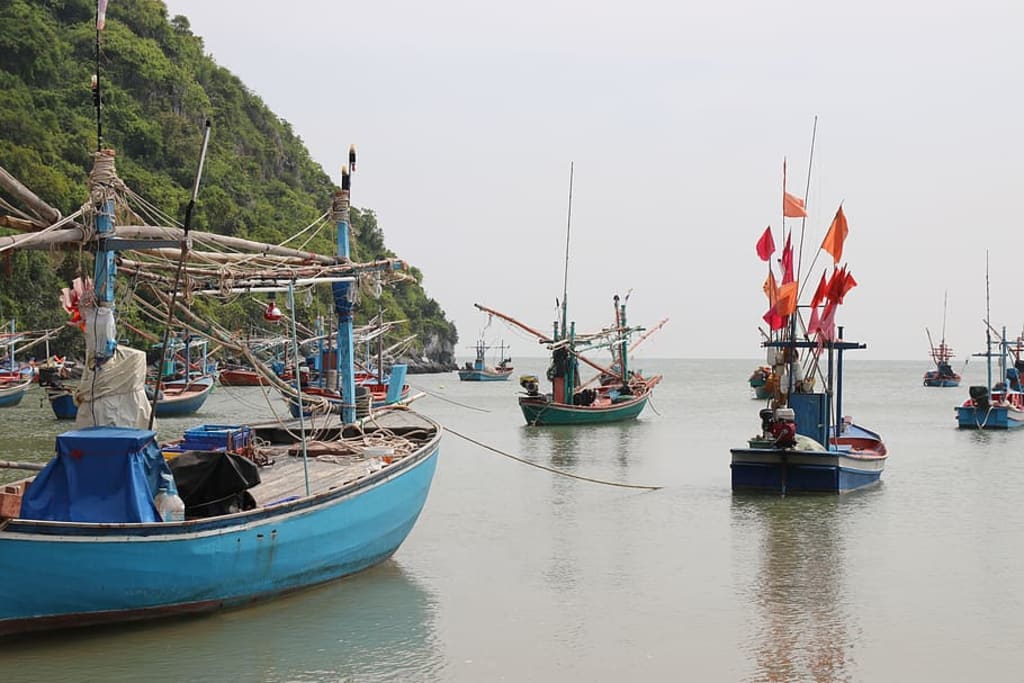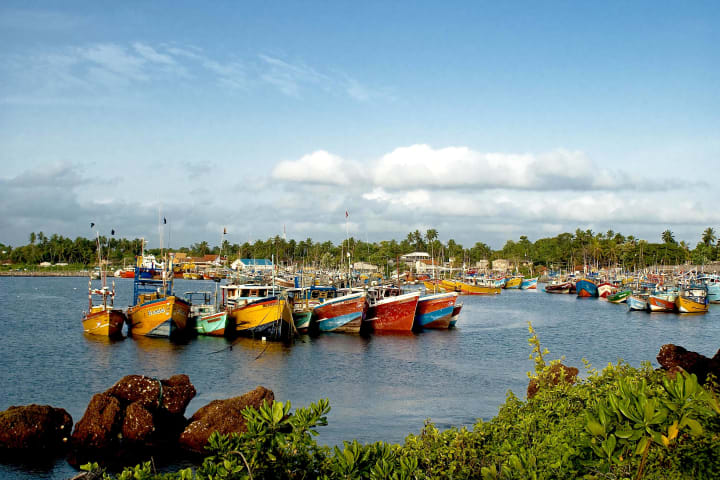
Fisheries are the activities involved in the harvesting, processing, marketing, and distribution of fish and other aquatic organisms for human consumption, as well as for other purposes such as recreational fishing, aquaculture, and the production of fish meal and fish oil.
The fishing industry is an important source of food and income for millions of people around the world, and plays a significant role in the economies of many countries. However, overfishing and other unsustainable fishing practices have led to declining fish populations and environmental damage in many parts of the world.

Types of Fisheries
There are several types of fisheries, including:
Commercial Fisheries: These are fisheries that are conducted for profit, and are typically large-scale operations that use a variety of fishing methods and equipment.
Recreational Fisheries: These are fisheries that are conducted for sport or leisure, and are typically smaller-scale operations that use less-intensive fishing methods and equipment.
Subsistence Fisheries: These are fisheries that are conducted by small-scale or indigenous communities for their own consumption, and may use traditional fishing methods.
Aquaculture: This is the practice of raising fish and other aquatic organisms in ponds, tanks, or other controlled environments for commercial or recreational purposes.
Fishing Methods
There are many different methods used in fishing, including:
Net Fishing: This involves using nets to catch fish in the water, and is one of the most common and traditional methods of fishing.
Longline Fishing: This involves using a long line with baited hooks to catch fish, and is commonly used to catch species such as tuna and swordfish.
Trawling: This involves dragging a net along the bottom of the ocean floor to catch fish and other marine organisms, and is commonly used in commercial fisheries.
Purse Seining: This involves using a large net to surround and capture schools of fish, and is commonly used to catch species such as tuna and sardines.
Challenges Facing Fisheries
There are several challenges facing the fishing industry, including:
Overfishing: This is the practice of fishing at a rate that is unsustainable, leading to declining fish populations and ecological damage.
Illegal, Unreported, and Unregulated Fishing: This refers to fishing activities that are conducted in violation of national or international laws and regulations, and can contribute to overfishing and other environmental problems.
Habitat Destruction: This refers to the destruction of critical fish habitats, such as coral reefs, wetlands, and estuaries, which can reduce fish populations and biodiversity.
Climate Change: This can affect fish populations by altering ocean temperatures, currents, and acidity levels, and can also lead to the expansion of invasive species.
Efforts to Address Fisheries Challenges
Efforts are being made at the global, national, and local levels to address the challenges facing the fishing industry. Some of the main strategies being pursued include:
Sustainable Fishing Practices: This involves promoting sustainable fishing practices, such as the use of selective fishing gear, the establishment of marine protected areas, and the adoption of quotas and other management measures.
International Cooperation: This involves working together at the global level to develop and enforce international agreements and regulations that promote sustainable fishing practices and protect marine ecosystems.
Aquaculture: This involves promoting the expansion of sustainable aquaculture operations as an alternative to wild-caught fish, and as a means of reducing pressure on wild fish populations.
Consumer Awareness: This involves educating consumers about the environmental impacts of different fishing practices, and encouraging them to make informed choices about the seafood they consume.
In conclusion, fisheries play an important role in providing food and income for millions of people around the world. However, unsustainable fishing practices, such as overfishing, illegal fishing, and habitat destruction, pose significant threats to the long-term viability of fish populations and marine ecosystems. Efforts to address these challenges include promoting sustainable fishing practices, international cooperation, expanding aquaculture operations, and increasing consumer awareness. By working together to promote sustainable fishing practices and protect marine ecosystems, we can ensure that fisheries continue to provide important benefits for generations to come.
About the Creator
Love The Green
Welcome to my page,I hope to share my experiences, insights, and knowledge with fellow nature enthusiasts.Together, we can celebrate the wonders of the natural world, and work to protect and preserve it for future generations to enjoy🌿🌲






Comments
There are no comments for this story
Be the first to respond and start the conversation.